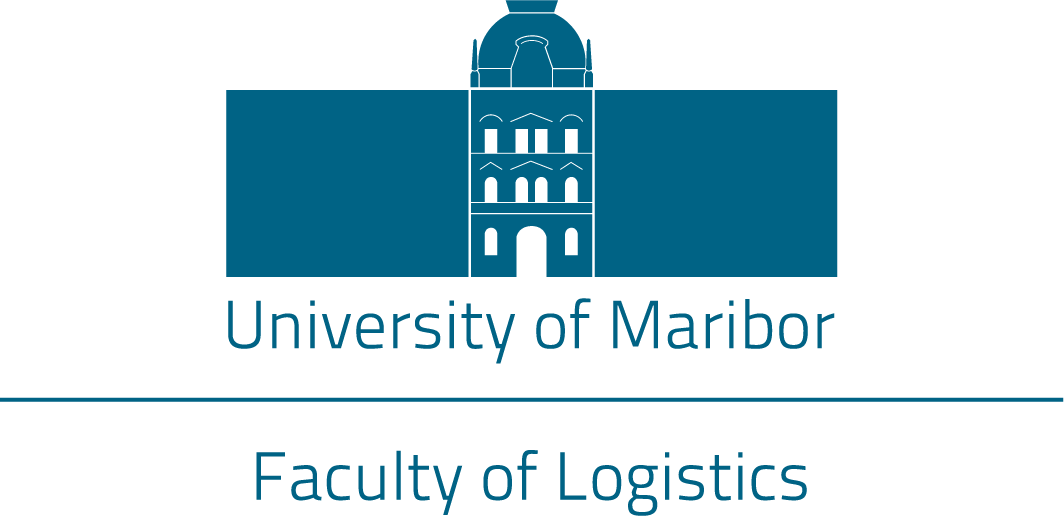Laboratory for Management In Logistics And Supply Chains
Laboratory members:
Head of the laboratory: assoc. prof. Matevž Obrecht, PhD
Laboratory members: full prof. Bojan Rosi, PhD; full prof. Borut Jereb, PhD; assist. prof. Sonja Mlaker Kač, PhD; lect. in Eng., Polona Vičič, PhD; teaching assist. Maja Rosi, PhD; teaching assist. Mateja Čuček, teaching assist. Milena Kajba
Scientific-research work
Primary research fields of the laboratory are:
- Impact of new technological and socio-economic risks on supply chains and logistics of the future
- Management of environmental risks in the fields of transport and supply networks
- Human resources and their management in logistics processes and supply chains
- Terminology from the fields of logistics and supply chains
The Laboratory for Managing Logistics and Supply Chains engages in the research of transformation and development of new forms of supply chains, which follow the latest technological (IoT in the distribution in supply chains; autonomous vehicles and electric vehicles for transport in supply chains; cloud logistics for connecting supply chain stakeholders) and socio-economic trends (sharing economy – sharing of transport, warehouses, containers, etc.; connected life; just-in-time approaches) in logistics. Furthermore, our research activities focus on new technologies for cleaner transport (researching hydrogen and biomethane as energy sources for transport of the future), which impacts the development of sustainable supply chains.
The study of the impact of socio-economic and social preferences on changes in logistics focuses on supply chains (e.g., food supply chain, textile supply chain, energy supply chain) and identification of potential improvements for achieving better sustainability in the network of supply chain partners (one example being reduced emissions due to increasing in online shopping).
In the field of environmental risks, our research focus is on the impact of transport on the environment on the micro-level (city access roads, motorway slip roads, etc.), the impact of transport on cyclists and pedestrians at different distances from the source of pollution, and the analysis, modelling and simulation of the impact of pollution on the planning of environmentally and human health friendlier transport routes in supply chains of the future. The focus is on measuring PM particles.
Given the increase in e-mobility and the number of models of registered electric vehicles in the UE, the laboratory also researches the potential of the use of electric vehicles and worn out batteries of electric vehicles (personal vehicles, forklifts, transporters) for stabilization and provision of a reliable and affordable energy supply network.
Other important research areas are the social responsibility of logistics companies, socially responsible practices in logistics, identification and study of competencies of future logistics personnel in rapidly changing business environments, and the need for constant adaptation and integration of new competencies needed for handling new technologies in logistics.
Research also includes the study of new expressions, most of which emerge in the English language, their understanding and translation into the Slovene language, and the role of modalities in research and professional texts in the field of logistics.
Projects
Completed projects (2019):
- Interreg Slovenia Croatia: Cross Health
- Promotion of interdisciplinary integration of environmental topics in the process of higher professional education
- Biomethane – sustainable energy source for transport
- We explain – the potential of the use of explanatory video content in logistics in tourism
- Measurement of PM particles and black carbon in transport
Projects in progress:
- ŠIPK projects
- The millennial generation, its specificities and the importance of understanding them in the service industry
- Promotion of the evaluation of environmental impacts and their integration into the planning of transport routes
- International language conference The Importance of Learning Professional Foreign Languages for Communication between Cultures
Projects submitted for consideration:
- Promotion of interdisciplinary environmental and sustainability topics in logistics and supply chain related higher education in the Middle east (Bilateral SLO-TR)
- Explanatory video contents in logistics and tourism – Erasmus + Strategic partnerships (Erasmus+)
- Supply chain risk catalogue (international)
- PV energy production and EV as storage for stabilizing in the electric power system as a new economic model for new companies trading with PV energy
- Development of the application for the evaluation of environmental impacts of transport routes for increasing the sustainability of supply chains (Tetramax)
- Preparation of national strategy and action plans for transition from coal of Slovenian coal regions (EC REFORM/SC2020/004)
Opportunities for students
There are plenty of opportunities for students: they can take part in different international and national projects carried out in the framework of the laboratory. Students can further their research work in the framework of (scientific) research work, final work. They are encouraged to present their research results at domestic and international conferences, symposia, and in journals.
